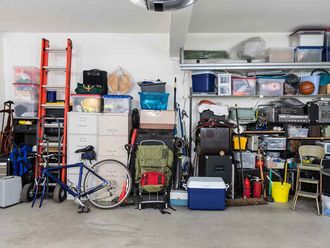
While you can track what your workers are doing at home, it is more difficult to keep track of people who have tested positive for coronavirus disease, and vanished.
Office managers are resorting to apps to check whether you have hit the couch and are binging on the new Netflix series on Indian marriages and matchmaking, or playing video games instead of working on the content for the company website, that is due, like yesterday.
Things have changed fast since the time when we had a bunch of people sitting in a room on the roof of our office, listening with headphones and recording every call made (but that was done for security purposes rather than time management of the journalists), to pagers that tied you to the workplace like a digital chain, to emails that hounded you through your inbox all times of the day and night, to smartphones that you could never shut off.
Some companies in Bengaluru, the IT hub of India, ask their staff to keep the webcam on all the time. One techie joked to a local newspaper that his boss knows how many loo breaks he takes and for how long, and what he eats for lunch
The app developers have coached what their product does in a very friendly language and in a happy tone: “Increase your staff’s work-life balance and up their productivity 20 per cent”.
The app takes screenshots of your screen and zips it off to your boss and there is another digital spy that shows how long you have sat on your home office chair.
Invasion of privacy
Even while it is tale-tattling and invading your privacy, it tries to be kind, and notifies the worker that it is time to take a break, because the artificial intelligence knows that human beings can work effectively for only that many hours in a day, and no more.
Most companies quickly stop access to the firm’s network and you are digitally cut off completely whenever anyone leaves or is laid off, so the only things you can take away from the company through the security gate in a cardboard box, is the physical junk on your desk, the plant you bought and your wife or girlfriend’s picture that glared or smiled at you throughout your working life.
Some companies in Bengaluru, the IT hub of India, ask their staff to keep the webcam on all the time. One techie joked to a local newspaper that his boss knows how many loo breaks he takes and for how long, and what he eats for lunch.
Since some of the work done is of the sensitive nature, companies set up apps that can take control of your laptop or desktop and some can erase stuff from your PC very quickly. Earlier, banks and financial institutions would buy such apps, now everybody wants it, according to a techie.
Constant surveillance
The constant surveillance from your office has taken the joy of working from home, away from the stiffing office atmosphere, and the joy of not having to battle the daily traffic, has all been wiped out.
Plus, the stress of being with your wife and children the whole time is increasing mental issues. Office work was invented for people to escape from their homes for the better part of the day.
Now, you can’t even goof off at your home workplace and log on to Facebook and troll your digital friends, because physical meetups are a thing of the past in these days of coronavirus.
While it is easy to digitally trap your workers, it seems impossible to track those infected with the coronavirus disease who decide to disappear rather than be interred in a government facility.
In Bengaluru, there are about 4000 infected who vanished into thin air and are somewhere around me like zombies waiting to breathe in my vicinity and blow air bubbles or aerosols in my direction and infect me.
Mahmood Saberi is a storyteller and blogger based in Bengaluru, India. Twitter: @mahmood_saberi







